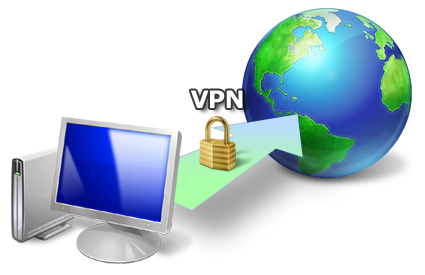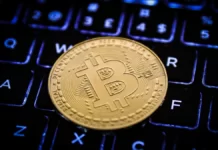Paying your taxes is never fun, but it definitely feels rewarding when you’re done with them. Well, paying your taxes abroad securely is even more hassle. And if you don’t bother with that, you risk leaving your personal data exposed online for hackers to steal.
Most people recommend using a VPN to pay your taxes. And it’s a really good suggestion – it encrypts your traffic so nobody can spy on you when you do your taxes anymore. Plus, VPNs are very easy to use, so they won’t interfere with you doing your taxes.
But some of you maybe don’t want to pay for a VPN just to do your taxes. And you might be thinking – can’t you just use a free VPN instead?
Well, you can – there’s nobody forcing you not to do that. But we really don’t recommend using a free VPN for taxes. We’ll show you why in this guide. Also, we’ll tell you what else you can do with a paid VPN (besides paying your taxes).
Why Free VPNs Aren’t Safe to Use for Taxes
Free VPNs are convenient, we’ll give you that. But they’re just not worth it. Here’s why it’s very risky to use them?
They Lack Good Security Features
Free VPN often don’t have important security features that keep you safe online.
For example, they might not have a kill switch, which is an important security feature that protects you against traffic leaks (when the VPN disconnects). Without a kill switch which shuts down web access when the VPN connection goes down, your tax-related data will be left exposed while the VPN reconnects.
Besides that, free VPNs also don’t have secure protocols like WireGuard and OpenVPN. More often than not, you’ll be stuck using PPTP – a very fast but very unsafe protocol (its encryption can be cracked).
Also, free VPNs usually suffer WebRTC, IPv6, or DNS leaks. That means some of your traffic will be leaked outside the VPN tunnel (it won’t be encrypted).
They Log Your Data
Top paid VPNs don’t keep logs – that means they don’t monitor your VPN usage. Free VPNs, however, usually collect your IP address and monitor your traffic (they see what sites you visit and what files you download).
They then sell that data to advertisers for a nice profit (they have to make money somehow). When you do your taxes, you need complete privacy, so traffic logs won’t do you any favors.
They Might Expose You to Malware
This happens a lot if you use random free VPNs you find on the app store. They expose you to malware, which means hackers could take over your device.
It’s pretty obvious why that’s bad – cybercriminals could steal all your tax data (bank account numbers, social security numbers, credit card information, and more).
What’s more, free VPNs display in-app ads. Well, some of those ads can be malicious, and it’s enough for you to hit the X button to trigger a malware infection.
They’re Just Annoying to Use
Free VPNs just don’t offer a streamlined and smooth experience. Here’s why:
- Their apps are usually buggy and crash a lot.
- There is no dedicated 24/7 support. So if you experience a problem, you’re on your own.
- The speeds are very slow – to the point where the online websites you use to pay your taxes will take more than 20 seconds to load.
- You’re limited to how much data you can use.
- They don’t have apps for all platforms.
Still Want to Use a Free VPN?
If you insist on using one, at least use a good one. We recommend ProtonVPN if you need to do your taxes. It’s trustworthy because it has a legitimate business model – it’s not completely free and has paid plans. Also, ProtonVPN has another service – an anonymous email service called ProtonMail.
Besides that, ProtonVPN offers excellent security. It has secure protocols and strong encryption and open-source and audited apps. Also, the free plan lets you use servers in three locations (the US, the Netherlands, and Japan) and you actually get pretty fast speeds (we only experienced a 20-30% slowdown on average).
Paid VPNs Aren’t That Expensive, Really
Sure, the monthly plans are usually over $10, but if you pick a long-term subscription (2-3 years), you’ll end up paying only $2-4 per month, which is significantly cheaper.
What’s more, most paid VPNs offer risk-free money-back guarantees so you buy with no risk. Most VPNs have 30-day refunds, but other VPNs also have 45-day money-back guarantees (CyberGhost VPN and Hotspot Shield).
Here’s What Else You Can Do with a Paid VPN
We just showed you that paid VPNs don’t have to break the bank. But you’re probably wondering – why would I subscribe to long-term plans if I only need to use the VPN once a year to do my taxes?
Fair question. And the answer is very simple – because there are tons of other things you can do with a VPN besides just securing your traffic when you do your taxes. Here’s a quick look at some of those things:
- Bypass geo-blocks to unblock content on sites like Netflix, Disney+, and Amazon Prime.
- Unblock sites censored by governments and network admins.
- Prevent bandwidth throttling by encrypting your traffic.
- Improve your online gaming experience – avoid IP bans, decrease lag, and save money on games.
- Secure your P2P traffic and avoid getting in trouble with lawyers and ISPs for downloading torrents.
The Bottom Line
If you need a VPN to do your taxes online, don’t use a free VPN. It’s too risky and it’s not worth putting your data at risk. Use a paid VPN instead to be 100% safe. Plus you can use it for other cool things – to unblock sites, avoid DDoS attacks, and game online.





